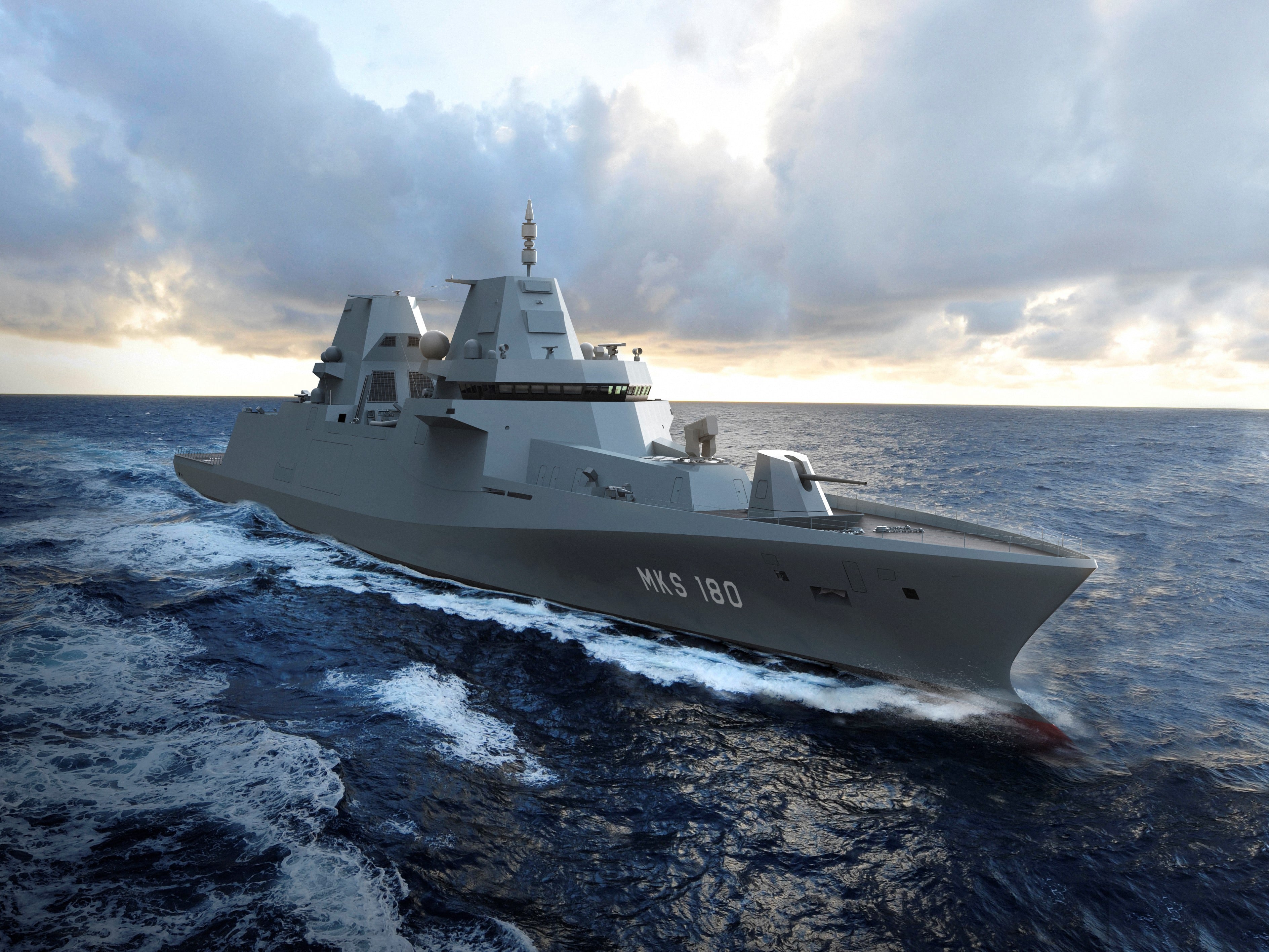COLOGNE, Germany — The losing bidder for Germany’s MKS 180 large-frigate program has filed a protest against the government’s pick of Dutch shipyard Damen for the $6.7 billion job.
German Naval Yards, based in Kiel, Germany, on Monday said it had “serious doubts about the legality of the decision” and would “exhaust all legal possibilities at our disposal” to have the decision overturned.
The Defence Ministry announced Jan. 13 it selected Damen to build an initial four copies of the new multipurpose combat ships. The pick capped a source-selection process that had become controversial because the government decided to compete the project throughout the European Union. The strategy followed the bloc’s principle of a unified market, but it left the domestic shipbuilding lobby miffed.
The protest by German Naval Yards and its bid partner ThyssenKrupp Marine Systems kicks off a dispute process that begins with the Defence Ministry reviewing the complaint and then, if it remains unresolved, could wind its way through the German court system.
There is no telling how long the process will take — some protests get resolved within weeks, but the process can take a year or longer. The Defence Ministry is expected to offer an indication later this month on whether its attorneys believe the Damen pick can withstand legal scrutiny.
RELATED

Damen has said it wants to build the ships at the shipyards of its German bid partner Lürssen, vowing to invest 80 percent of the contract's value in Germany.
The protest comes at a time when Berlin is adopting a new policy that grants an exception to the EU competition mandate when national security is at stake. Specifically, the construction of surface warships would be designated as a “key technology area” so worthy of protection that future programs would be automatically awarded to German manufacturers.
For that to be the case, however, two political initiatives have yet to play out: The German parliament must approve a revision of national source-selection rules from October 2019, which formally enable EU acquisition exceptions on national security grounds. In addition, the Cabinet has to greenlight a draft strategy document on nurturing domestic security- and defense-related industries, currently in interagency review, that confers the rank of “key technology area” to naval surface combatants.
The strategy document, overseen by the Federal Ministry for Economic Affairs and Energy, is expected to be ready for Cabinet consideration within weeks, as Defense News reported last week.
Legal experts said the “key technology” debate has no immediate bearing on the German Naval Yards protest. At the same time, it is possible that the complaint’s resolution, whichever way it goes, will come at a time when a domestic award preference for similar contracts is already in effect.
Sebastian Sprenger is associate editor for Europe at Defense News, reporting on the state of the defense market in the region, and on U.S.-Europe cooperation and multi-national investments in defense and global security. Previously he served as managing editor for Defense News. He is based in Cologne, Germany.








